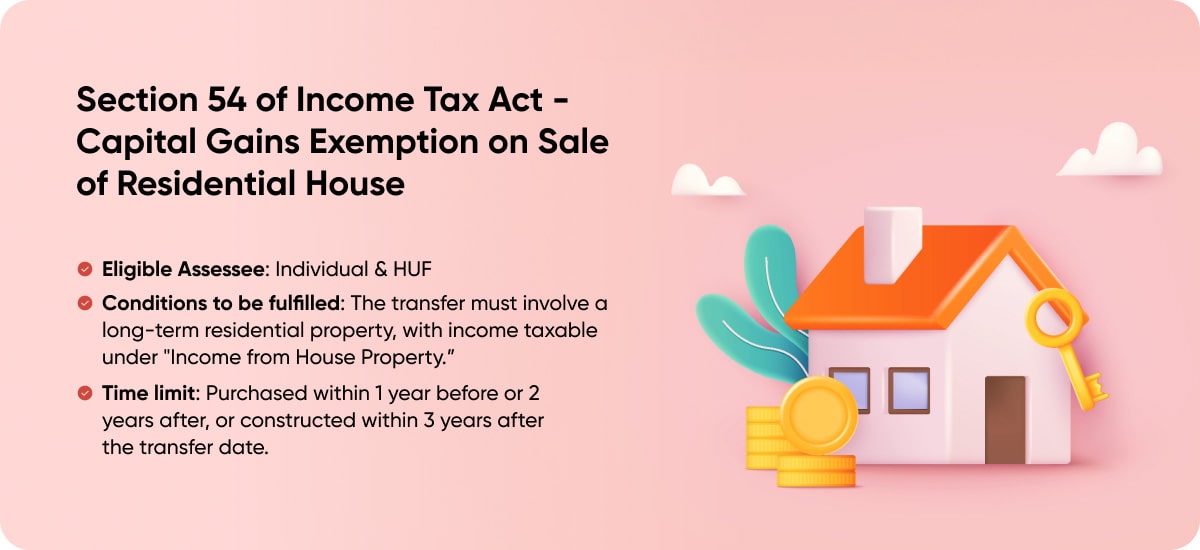sale of house exemption under income tax act

Selling a house can bring in a big lump sum — but it can also attract capital gains tax. Thankfully, the Income Tax Act, 1961 provides several exemptions that can help you save tax on the sale of your residential property.
Let’s understand how!
???? What is Capital Gain on Sale of House?
When you sell a house, the profit you earn is called capital gain. It is calculated as:
Capital Gain = Sale Price – Indexed Cost of Acquisition & Improvement – Selling Expenses
There are two types of capital gains:
1. Short-Term Capital Gain (STCG)
If property is sold within 24 months of purchase.
Taxed at your slab rate.
2. Long-Term Capital Gain (LTCG)
If sold after 24 months.
Taxed at 20% with indexation benefit.
✅ Exemptions Available Under the Income Tax Act
If you have a long-term capital gain (LTCG), you can claim exemption under certain sections:
???? Section 54 – Sale of Residential Property
Who can claim? Individual or HUF
What is sold? A residential house
What to do? Buy another residential house in India
Time limit:
Purchase: within 1 year before or 2 years after sale
Construction: within 3 years after sale
Exemption Limit: Up to the amount of capital gain or the cost of new house, whichever is lower
???? From FY 2023-24 onwards, exemption is limited to ₹10 crore.
???? Section 54EC – Invest in Capital Gain Bonds
Who can claim? Anyone
What to do? Invest the capital gain amount in specified bonds (NHAI, REC, etc.)
Time limit: Within 6 months from the sale date
Lock-in period: 5 years
Exemption Limit: Up to ₹50 lakh
???? Section 54F – Sale of Any Asset (Not Residential Property)
If you sell any capital asset (e.g., land, shares) and invest the proceeds in a residential house, you can claim exemption.
Must not own more than one house (except the new one).
Exemption is proportional to the amount invested.
???? Capital Gains Account Scheme (CGAS)
If you don’t immediately use the capital gain to buy a house, you can deposit the money in CGAS (a special account in a bank) before the due date of filing your return. This keeps your exemption valid until you invest.
